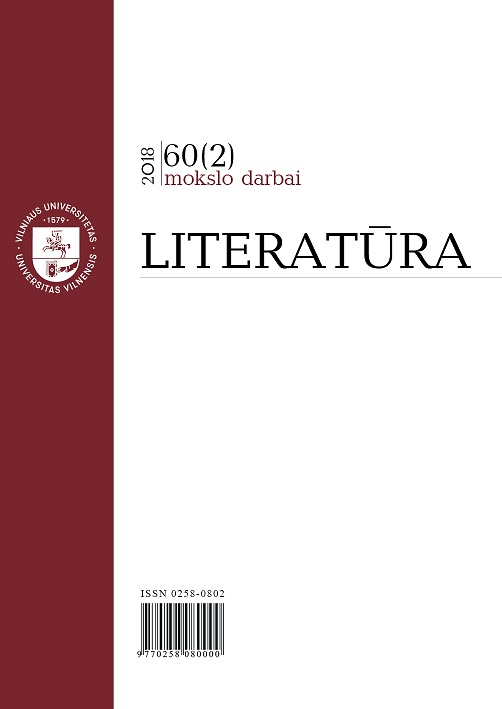«Диалоги согласия»: конвергентная стратегия в пьесах Ивана Вырыпаева «Иллюзии», «Летние осы кусают нас даже в ноябре», «Пьяные», «Солнечная линия»
“Dialogues of Consent”: The Convergent Strategy in the Plays by Ivan Vyrypajev Illusions, Summer Wasps Bite us Even in November, the Drunks, the Sun Line
Author(s): Elena KurantSubject(s): Theatre, Dance, Performing Arts, Russian Literature, Theory of Communication, Theory of Literature, Drama
Published by: Vilniaus Universiteto Leidykla
Keywords: Ivan Vyrypajew; author’s strategy; Russian modern drama; performative drama; convergent strategy;
Summary/Abstract: The dramatist, film and theatre director Ivan Vyrypajev is one of the leading representatives of the contemporary literary process. Using postmodernist means, Ivan Vyrypayev, however, goes beyond the postmodern worldview. He creates a theatrical and paratheatrical project (pedagogical activity, meetings with the audience, production activities) based on his own philosophical and aesthetic system. Compared to the traditional theatre (and also contemporary new dramaturgy), it is an alternative project of a conceptual, performative text directed at the recipient and open to the recipient; a new project of social discourse theater that combines the elements of entertainment and the tricks typically found in the socalled “mass art” with the performative effectiveness of interaction and the presentation of specific philosophical views on the condition of the modern man. In Drunk, Summer Wasps Bite Us Even In November, A Sunny Line, the characters are placed in a limited space enclosed by a pattern of domestic dramas; they engage in small-talk, confide and quarrel with each other, but above all, they desperately seek connection – all they wish is to get closer to each other, but no matter what they say or do, they encounter endless obstacles in the form of the language itself. The language they operate is against all communication: it does not allow them to hear one another, it makes it impossible to establish “contact” – the most important thing and the way to “regain” the disintegrating identity in the process of experiencing the Other. A character, seen as a “formal construct,” unable to go beyond the language discourse, tries to find meaning that is not provided by traditional dialogue in language experiments. The deposition of separateness, foreignization and meta-theatrical tricks let the characters rise to a new level of “otherness,” which, paradoxically, allows them to transcend from extraneousness and a lack of understanding to oneness and harmony. The wearing of a mask in imitation of the psychodrama pattern (A Sunny Line) creates an atmosphere of acceptance, understanding and trust, necessary for real open communication. Crossing the barriers, searching for the most important values, disentangling the ultimate questions in everyday life, among trivial needs, reveal a desperate desire for love; seeing a desperate attempt to communicate with other people in routine conversations, the playwright looks to the man who found himself on the edge, to his relations with others people, with God and, ultimately, with himself.
Journal: Literatūra
- Issue Year: 60/2018
- Issue No: 2
- Page Range: 92-106
- Page Count: 15
- Language: Russian

